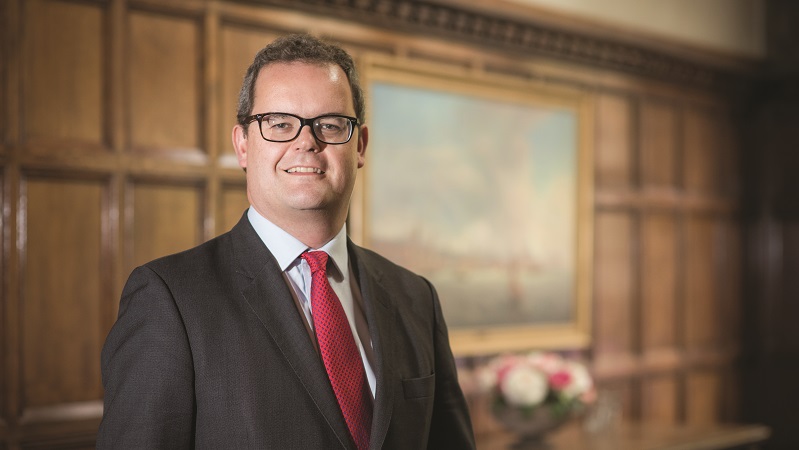Tyndall North American manager Felix Wintle experienced a “once in a lifetime trade” when his bet on down and out video game retailer Gamestop found itself at the centre of a Reddit-fuelled short squeeze.
Wintle (pictured) told Portfolio Adviser he decided to take a chance on Gamestop as a recovery play in December, buying in at $18 a share and topping up his position in January.
This move proved fortuitous as weeks later small time investors on r/wallstreetbets sparked a 1,500% rally which sent shares as high as $483.
Wintle sold out gradually on 26 January at an average price of $90.83, netting him a 5x return on his initial investment in three weeks, which he described as a “once in a lifetime” trade.
“The first time it doubled we took some off, then it doubled again, and we sold more,” Wintle recalled. “Then it went crazy and we pyramided the sales of the stock all the way up to about $150.”
Wintle’s £49.5m fund was the top performing fund of the entire IA universe last month, returning 14.4% and beating the S&P 500 by 15%.
144% short was the ‘real hammer blow’ for Gamestop investment case
Gamestop had been left for dead since 2013, the last console cycle which saw Sony’s Playstation 4 burst onto the scene. Investors assumed digital video game download sales would eclipse sales of physical copies, leaving brick and mortar shops like Gamestop in the dust.
While this trend did come to pass, the fact the latest Playstation 5 consoles contained disk drives led Wintle to believe the “complacent bear case” that sales would shift to 100% digital was false.
“The great thing about having a physical game is you can trade it and you can buy second hand games,” Wintle said. “There’s a whole community around that and you can’t do that with digital downloads so it kind of made sense why people wanted it.”
But the “real hammer blow” which convinced him to take the plunge was the fact that Gamestop shares were 144% short.
“I wish I could have taken a screenshot because in a few years’ time we’ll look back and think it can’t have been this,” Wintle said. “You never see numbers like that.”
See also: Gamestop trading frenzy fuels fears of next equity bubble
Gamestop-like recovery plays
Wintle owns several other retailers that, like Gamestop, have been shunned and forgotten about after facing years of disruption from online retail giants like Amazon.
“The ones that have survived Amazon, the shift online and Covid, are now sitting in a situation where they’ve not only survived those massive existential threats, they’ve taken a sharp knife to their cost base and now they’re fit and ready for the next phase which is this massive recovery,” Wintle said.
One beaten up retailer he likes is Capri Holdings, which owns luxury fashion brands Michael Kors and Versace, as well as high-end shoe designer Jimmy Choo.
The company is currently trading at around 5x earnings with shares trading at $46 a pop, which is considerably cheaper than rival fashion houses Louis Vuitton parent company LVMH (€532), Christian Dior (€453) and Ralph Lauren ($114).
“We reckon at this valuation you’re getting Jimmy Choo and Versace for free,” Wintle said.
“Michael Kors basically went out of fashion, a bit like Ralph Lauren has, but they’ve survived that and they’re reinventing themselves with a new management team and I think that’s a good candidate for a decent recovery.”
Beaten up banks look attractive
Other recovery plays in the portfolio include online travel company Expedia and investment banks Morgan Stanley and Charles Schwab.
The banks are another “very forgotten sector” that no one owns anymore, Wintle said.
“There’s a whole generation of analysts and fund managers who entered the industry in the last 10 years who haven’t had to worry about financials or banks because they’ve never seen them perform.”
Financials currently make up 6.5% of the portfolio, paling in comparison to the quarter of the fund held in tech stocks like Snapchat, Pinterest and Spotify. But Wintle says he will be adding to that position on the dips.
“We think the 10-year Treasury yield is going to continue to rise and that does benefit the banks.”










